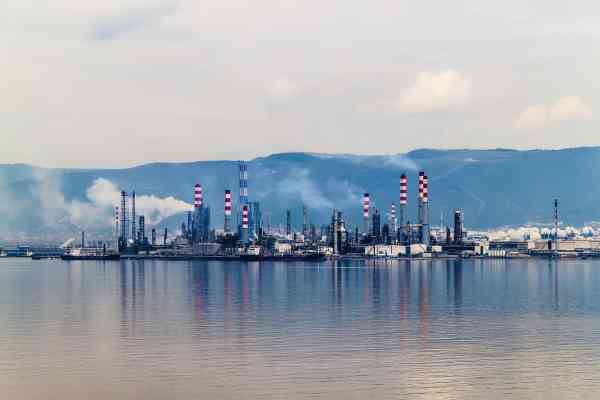December 17th, 2020 | 09:46 CET
Saturn Oil & Gas, BP, Royal Dutch Shell: Now the right oil stock!
The stock market is like a pendulum that swings back and forth. The year 2020 was undoubtedly the year of electromobility - just one look at Tesla with its USD 600 billion capitalization is enough - and a year for the "hype topic" hydrogen, which though still needs at least 3 years of research and development for series production. Both are much-discussed alternatives to oil and other fossil fuels. Unfortunately, this comparison is somewhat misleading, as significant amounts of oil and coal are still used to generate both electricity and hydrogen. The drivers of electric vehicles like to pat themselves on the back because of their political compensation. Still, there is now a consensus in the research community that electric propulsion systems on a broad scale can in no way be described as a solution for sustainable economic activity. On the government side, of course, there are great tax incentives that probably reflect the intrinsic motivation of the e-belief community to a huge extent. However, if the battery goes on strike in the winter, fortunately, you still have the V8 in the private garage.
time to read: 4 minutes
|
Author:
André Will-Laudien
ISIN:
CA80412L1076 , GB0007980591 , GB00B03MLX29
Table of contents:

"[...] Internally we expect the resource to significantly grow the deeper we mine. [...]" Dennis Karp, Executive Chairman, Manuka Resources
Author
André Will-Laudien
Born in Munich, he first studied economics and graduated in business administration at the Ludwig-Maximilians-University in 1995. As he was involved with the stock market at a very early stage, he now has more than 30 years of experience in the capital markets.
Tag cloud
Shares cloud
Saturn Oil & Gas - Something is brewing
John Jeffrey is the CEO of the Canadian oil producer Saturn Oil & Gas from Calgary. He is currently fully employed - and for good reason. Saturn has a total of about 234 million shares outstanding, representing a market value of CAD 24 million or EUR 16 million at current prices. The Company currently produces about 750 barrels per day and has been looking for expansion opportunities for some time. Several competitor oil fields in Saskatchewan are looking for orderly integration. The operators of these fields have thrown in the towel after the May 2020 oil sell-off and are waiting for higher market prices before investing. John Jeffrey welcomes this state of affairs, as it offers arguably one of the best environments in years for well-planned expansion.
Saturn Oil & Gas is in a position to produce very inexpensively in its oil fields, under the name Viking Light Oil, with low operating costs of USD 10-11. In addition, there are smaller royalties to landowners (so-called royalties of USD 2.0-3.0 per barrel). So, the incentives to merge with other properties are relatively high. The COVID pandemic and Christmas season are currently hampering technical due diligence on new acquisitions, but these are all just time constraints that could vanish into thin air on an ad hoc basis in early 2021. And, Saturn recently brought Jean-Pierre Colin on board as a strategic advisor - probably not without reason.
Some market indicators suggest that there will be relatively quick success stories in the coming year. After all, the acquisition currency "own shares" has been under pressure for a few weeks now. Within the "tax loss season", which is weak in trading, larger blocks of shares keep appearing on the supply side at the moment, which are not being traded away. The last chance for Saturn fans to get their hands-on cheap shares. In any case, Goldman Sachs is recommending the oil multinationals, and this applies even more to small promoters. The thin trade at the end of the year creates a small window of time to build up a favorable position in Saturn!
British Petroleum plc - Brexit doesn't bother anyone here
Serenity reigns supreme in British Petroleum's boardroom. While Boris Johnson haggles daily over the British exit clauses, the British pound is moving very steadily toward its independence, and everything indicates that not much will change in the grand scheme of things. Only the 5,000 lawyers from the EU and Great Britain will fight the battle, which will then have to be poured into new treaties for years. Have fun dear friends from the island!
BP has impressively survived the shock of the oil price crash, and the share price has risen by a whopping 50% since the lows of just under EUR 2. BP reported an already expected net loss of GBP 345.7 million in the last quarter, compared to GBP 575.5 million in the same quarter last year. If one excludes one-time restructuring costs, the adjusted earnings before interest and taxes at replacement cost came in at GBP 674.6 million fed by the upstream division. The environment remains challenging, but management is optimistic. Indeed, at the same time, the group's much-touted net debt was pushed down to just under GBP 40 billion, down from GBP 50.7 billion a year earlier.
After the Q3 figures, there were numerous broker upgrades, and the somewhat reduced dividend yield of 6.4% instead of 8.2% did not bother anyone, because the crisis in the oil market seems to be sufficiently priced in at BP.
Royal Dutch Shell plc - Back in demand after the correction
The British-Dutch oil multinational Royal Dutch Shell plc face a similar scenario. The figures are not the be-all and end-all, but the oil Company has achieved a turnaround. Nevertheless, profits fell far short of the previous year's figure, due to lower demand and pressure on oil and gas prices, as well as lower refining margins. As a result, production fell by 14%, but the bottom line was a profit of USD 489 million. That was only a fraction of the roughly USD 5.9 billion Shell had earned the previous year. Adjusted net income for July through September was USD 955 million, a slump of 80%. Would you believe it!
For Shell CEO Huibert Vigeveno, the oil age is about to end. "We said three years ago that oil demand could peak this decade," Vigeveno said in an interview. Oil and gas will be partially replaced by wind, solar and hydrogen in the future. To be sure, many countries are currently at entirely different points in this conversion process. But the trend is pointing toward fossil fuel reduction in favour of decarbonizing the planet. It could take another 25 years or so to be able to do without 80% of oil and petroleum products, this is calculated very optimistically, but the pressure in governments is correspondingly high.
Since we are still at the beginning of the 21st century, the proclaimed path to the Green Planet is likely to take some time. Time enough for oil companies to transfer their lush cash flows into a suitably sustainable future. In contrast to the highly indebted countries around the world, they are sitting on the longer lever due to their revenues and still existing indispensability. Therefore, even after a 50% recovery in the share price, Royal Dutch Shell shares still have high upside potential.
Of course, 200-500% is not to be expected; such returns are more likely with Canadian Saturn.
Conflict of interest
Pursuant to §85 of the German Securities Trading Act (WpHG), we point out that Apaton Finance GmbH as well as partners, authors or employees of Apaton Finance GmbH (hereinafter referred to as "Relevant Persons") may in the future hold shares or other financial instruments of the mentioned companies or will bet on rising or falling on rising or falling prices and therefore a conflict of interest may arise in the future. conflict of interest may arise in the future. The Relevant Persons reserve the shares or other financial instruments of the company at any time (hereinafter referred to as the company at any time (hereinafter referred to as a "Transaction"). "Transaction"). Transactions may under certain circumstances influence the respective price of the shares or other financial instruments of the of the Company.
Furthermore, Apaton Finance GmbH reserves the right to enter into future relationships with the company or with third parties in relation to reports on the company. with regard to reports on the company, which are published within the scope of the Apaton Finance GmbH as well as in the social media, on partner sites or in e-mails, on partner sites or in e-mails. The above references to existing conflicts of interest apply apply to all types and forms of publication used by Apaton Finance GmbH uses for publications on companies.
Risk notice
Apaton Finance GmbH offers editors, agencies and companies the opportunity to publish commentaries, interviews, summaries, news and etc. on news.financial. These contents serve information for readers and does not constitute a call to action or recommendations, neither explicitly nor implicitly. implicitly, they are to be understood as an assurance of possible price be understood. The contents do not replace individual professional investment advice and do not constitute an offer to sell the share(s) offer to sell the share(s) or other financial instrument(s) in question, nor is it an nor an invitation to buy or sell such.
The content is expressly not a financial analysis, but rather financial analysis, but rather journalistic or advertising texts. Readers or users who make investment decisions or carry out transactions on the basis decisions or transactions on the basis of the information provided here act completely at their own risk. There is no contractual relationship between between Apaton Finance GmbH and its readers or the users of its offers. users of its offers, as our information only refers to the company and not to the company, but not to the investment decision of the reader or user. or user.
The acquisition of financial instruments entails high risks that can lead to the total loss of the capital invested. The information published by Apaton Finance GmbH and its authors are based on careful research on careful research, nevertheless no liability for financial losses financial losses or a content guarantee for topicality, correctness, adequacy and completeness of the contents offered here. contents offered here. Please also note our Terms of use.




